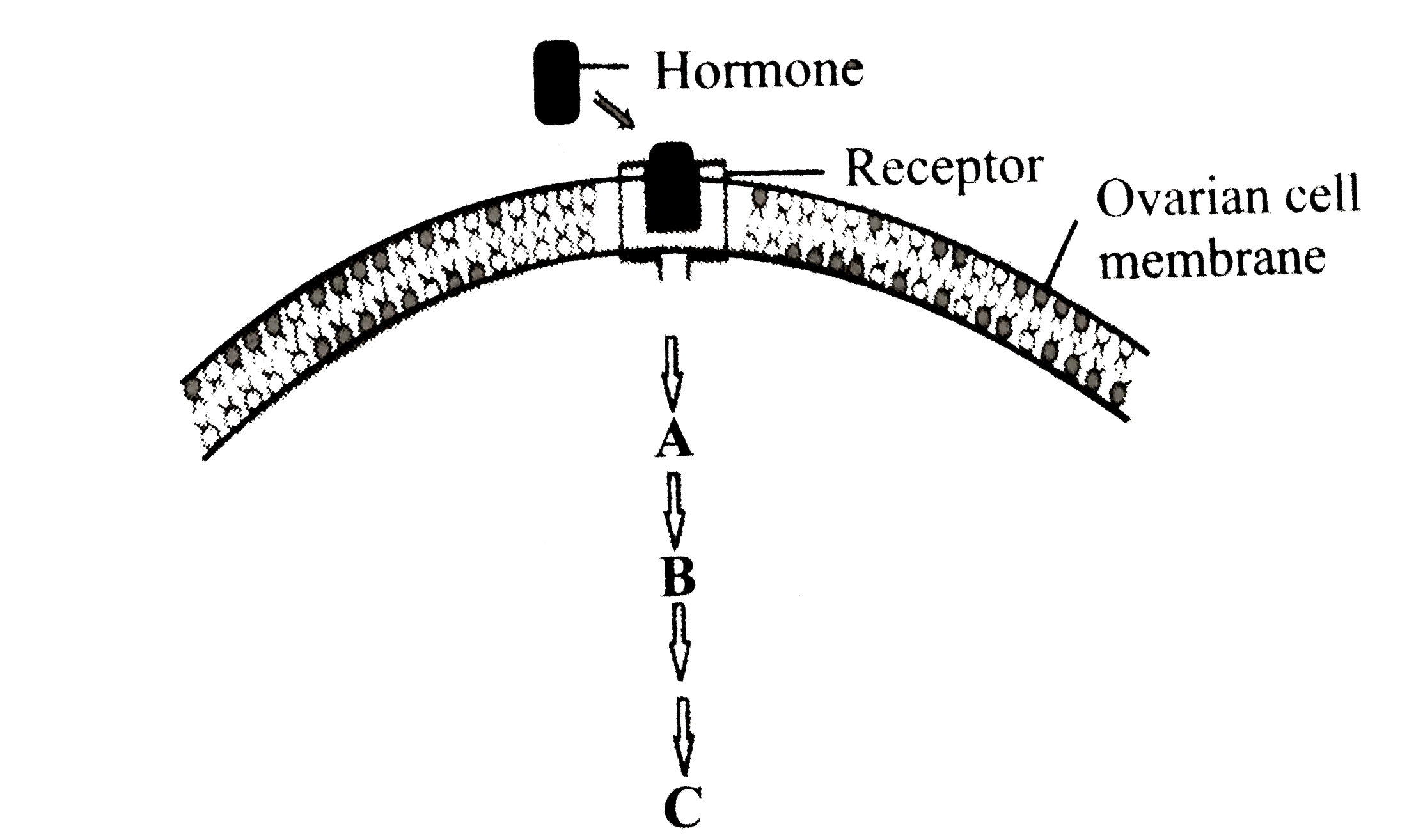In the mechanism of action of a protein hormone, one of the second messengers is
Cyclic AMP
Insulin
Gastrin
The correct Answer is:a
To solve the question regarding the second messenger in the mechanism of action of a protein hormone, we can follow these steps:
1. Understand Protein Hormones:
- Protein hormones are large molecules that include amino acid derivatives, peptides, and proteins. Due to their size, they are not soluble in lipids.
Hint: Remember that protein hormones cannot easily cross cell membranes due to their size and hydrophilicity.
2. Mechanism of Action:
- Since protein hormones cannot enter target cells, they bind to specific receptor molecules located on the cell surface.
Hint: Focus on the role of receptors in the action of protein hormones.
3. Role of Receptors:
- The binding of the hormone to its receptor triggers a cascade of intracellular events, leading to the generation of second messengers.
Hint: Consider what happens after the hormone binds to the receptor.
4. Identify Second Messengers:
- Common second messengers generated include cyclic AMP (cAMP), inositol trisphosphate (IP3), and calcium ions (Ca²⁺).
Hint: Recall the common second messengers associated with protein hormone signaling.
5. Evaluate the Options:
- Given the options:
- A) Cyclic AMP
- B) Insulin
- C) T3
- D) Gastrin
- Insulin, T3, and gastrin are hormones themselves, not second messengers. Cyclic AMP is a well-known second messenger in the signaling pathway of protein hormones.
Hint: Distinguish between hormones and second messengers in the options provided.
6. Conclusion:
- Therefore, the correct answer to the question is A) Cyclic AMP, as it is one of the second messengers involved in the mechanism of action of protein hormones.
Final Answer:
A) Cyclic AMP
- Protein hormones are large molecules that include amino acid derivatives, peptides, and proteins. Due to their size, they are not soluble in lipids.
- Since protein hormones cannot enter target cells, they bind to specific receptor molecules located on the cell surface.
- The binding of the hormone to its receptor triggers a cascade of intracellular events, leading to the generation of second messengers.
- Common second messengers generated include cyclic AMP (cAMP), inositol trisphosphate (IP3), and calcium ions (Ca²⁺).
- Given the options:
- A) Cyclic AMP
- B) Insulin
- C) T3
- D) Gastrin
- Insulin, T3, and gastrin are hormones themselves, not second messengers. Cyclic AMP is a well-known second messenger in the signaling pathway of protein hormones.
- Therefore, the correct answer to the question is A) Cyclic AMP, as it is one of the second messengers involved in the mechanism of action of protein hormones.
A) Cyclic AMP
Topper's Solved these Questions
- NCERT Exemplar Questions +1 (CELL: THE UNIT OF LIFE) BOOK - TRUEMEN BIOLOGY ENGLISHCHAPTER - NCERT Exemplar Questions +1 (CELL: THE UNIT OF LIFE) EXERCISE - MCQs
14 Videos
- NCERT Exemplar Questions +1 (LOCOMOTION AND MOVEMENT)BOOK - TRUEMEN BIOLOGY ENGLISHCHAPTER - NCERT Exemplar Questions +1 (LOCOMOTION AND MOVEMENT)EXERCISE - MCQs
14 Videos
Similar Questions
Second messenger is
View SolutionSome hormones need the secondary messenger because
View SolutionExplain the mechanism of action of enzyme.
View SolutionWhich one is a protein hormone
View SolutionRefer to the given diagrammatic representation of the machanism of action of a protein hormone.

In which of the following options correct labelling of A,B and C is given?
View SolutionGive the mechanism of the action of carbon monoxide.
View SolutionIllustrate the diffrences between the mechanism of action of a protein and a steroid hormone.
View SolutionThe mechanism of action of a steroidal hormone on target cell is established through the
View SolutionWhich of these hormones uses cAMP as a second messenger ?
View SolutionExplain the mechanism of action of T cells to antigens.
View Solution
